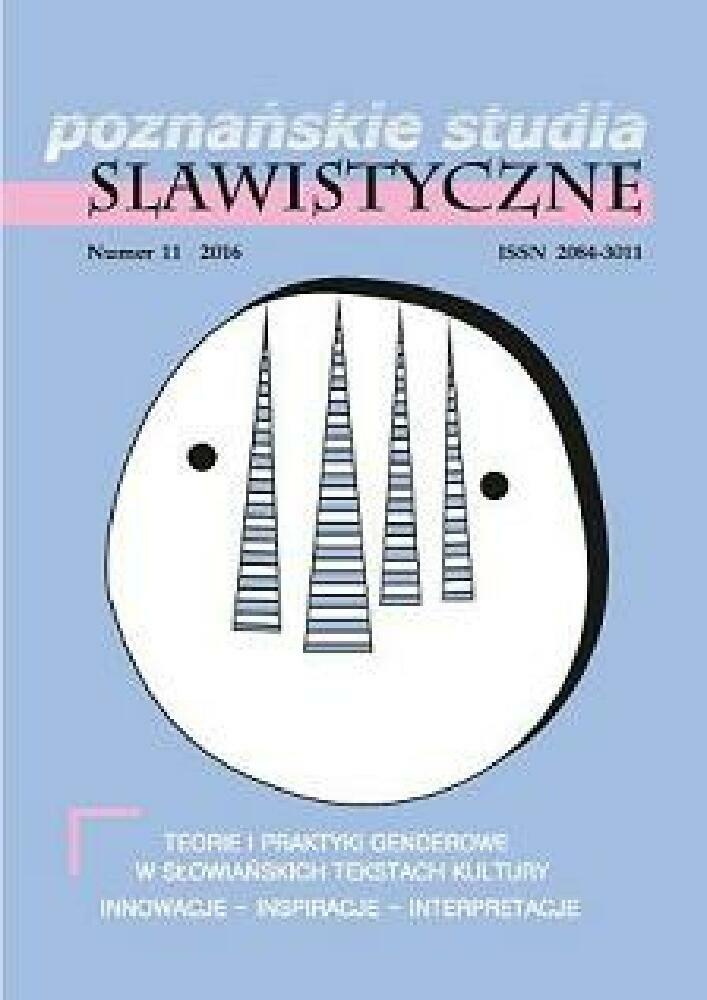Abstract
The paper is initiated by a brief outline of the development of women’s literature in the ex-“East European” countries since 1989. Then it turns to feminist literary theory tracking two different periods of its reception by, and adaption to, literary criticism in post-communist academic research. The concepts of women’s generations and women’s literary canon, vital for the western tradition of gynocriticism, are closely analyzed in line with their relevance to present-day women’s literature in post-communist culture. The paper ends with a presentation of a threefold model of the prospective to speak of women’s literature imbedded in, or in counter stance to, the traditional literary canon.References
Mohanty C.T., 1995, Feminist encounters: Locating the politics of experience, in: Social Postmodernism: Beyond Identity, eds. L. Nicholson, S. Seidman, Cambridge, pp. 68–85.
Papić Ž., 1993, Novija feministička kritika patrijarhata: relativizacija universalizma, “Sociologija. Časopis za sociologiju, socialnu psihologiju i socialnu antropologiju” vol. XXXV, no. 1, p. 118–133.
Showalter E., 1999, Written off, “The Guardian” 11.05 <http://www.theguardian.com/theguardian/1999/may/11/features11.g2>, 11.05.2015.
Strathern M., 1981, Culture in a netbag: the manufacture of a subdiscipline in anthropology, “Man. New Series” vol. 16, no. 4, pp. 665–688.
Бояджиевска М., 2004, La jeune née: всеки път, in: Гласове. Нова хуманитаристика от балкански авторки, eds. М. Кирова, Б. Бояджиевска, Б. ДойчиновичНешич, София.
Дойчинович-Нешич Б., 2004, Сърбия: с друг глас, in: Гласове. Нова хуманитаристика от балкански авторки, eds. М. Кирова, Б. Бояджиевска, Б. ДойчиновичНешич, София.
Николчина М., 2002, Родена от главата. Фабули и сюжети в женската литературна история, София.
License
Copyright (c) 2016 Milena Kirova

This work is licensed under a Creative Commons Attribution-NoDerivatives 4.0 International License.
